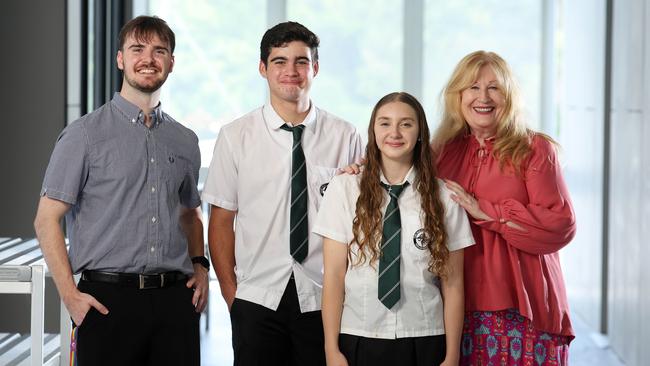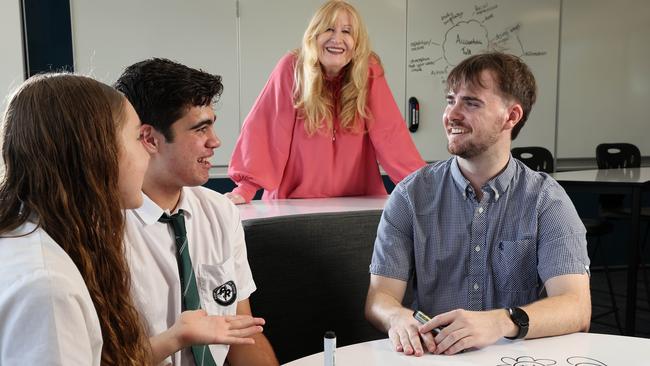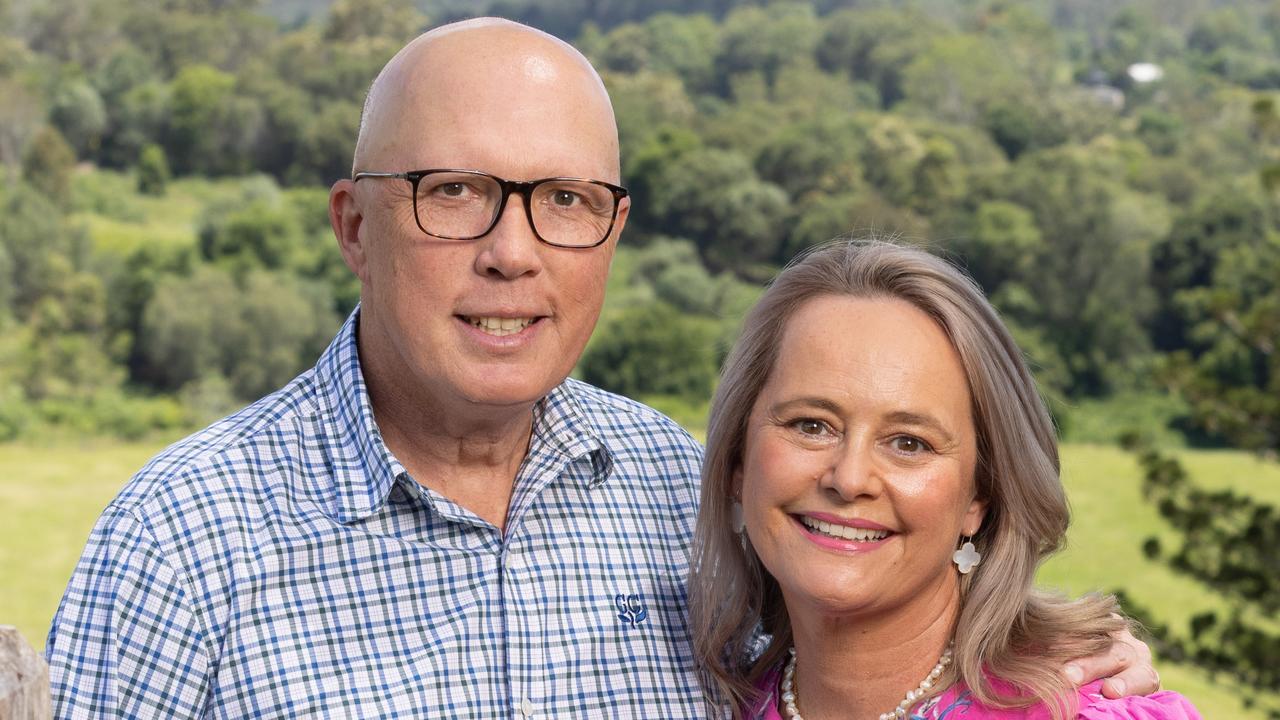New ways to learn
State schools recognised in the Queensland Government’s Showcase awards are delivering excellence through.

QWeekend
Don't miss out on the headlines from QWeekend. Followed categories will be added to My News.
Taking concepts from the corporate world and applying them to school students has been a winning formula for Park Ridge State High.
The high-performing school, south of Brisbane, has been recognised by the Queensland Government’s Showcase program, which celebrates 10 state schools each year for outstanding practices and initiatives that improve education outcomes.
Park Ridge executive principal Sharon Amos says the school’s pedagogical framework – Learning Design, Learning Together and Learning Life – was created to meet the needs of the modern student. Its approach has delivered a 92-94 per cent pass rate in most subjects.
“I come from a business background and I think that building a culture of expectation, excellence and seeing ourselves as a service industry was really important,” Amos says.
“We also started to bring on bespoke learning environments that catered for such a broad range of learners. We’re now into our 10th year of doing it. Every year we’re refining and seeing how we can make it better.”
At Coolum State High School, on the Sunshine Coast, the focus is on mentoring students. Senior school deputy principal, Emma Curnow, believes the Showcase award recognises the school’s dedication in trialling different processes to support children through Year 12.
For the past five years, senior students have been partnered with a teacher who becomes their mentor.
“Every mentor and student does it their own way. Everything is based on the relationship between them,” Curnow says.
“The teachers get a deep sense of satisfaction seeing their mentor student achieve their goals. Anyone in teaching is in it for the love of students and part of the reason it is so successful is teachers are willing to give up so much of their extra time.”

Curnow believes the individual mentoring has been crucial in seeing disadvantaged students succeed.
“There are students in every school who need a little more support and the mentoring process gives them a champion. That special relationship gives them an extra edge. When things are not going well, we pick up on them early so it’s easier to fix the problem,” she says.
The Mt Isa cluster of state schools – Barkly Highway, Happy Valley, Healy, Mount Isa Central and Townview – is changing students’ learning trajectory with Project 1000.
Healy State School principal David Hardy says working with families, communities and external organisations, along with the additional resource of a deputy in each school, has improved the transition to school and levels of English for kindergarten to year 2 students.
“A little while ago we stopped referring to it as the project and more as the work. Now this is just the work that needs to occur,” Hardy says.
“Kids are definitely receiving a better start to schooling and if they get a better start to schooling then their entire schooling will go better for them. We’re expecting students to have a much better life trajectory than what they would’ve had if we hadn’t put all this work together for their benefit.”
Cherbourg State School, in the South Burnett region, fosters a place-based approach to maximise student engagement and learning.
Alternative learning programs and community collaborations, such as a remote school attendance strategy, languages and culture programs, the Barambah Youth Services Hub and Cherbourg Us Mob radio, have improved student outcomes.
Positive engagement has led to improved outcomes at Loganlea State High School, in Logan City. Its Future Pathways project, in collaboration with 19 community, trade, services, industry and university partners supports meaningful transitions to post-school destinations.
Over the past four years, this customised, student-centred approach has had tangible results; a significant increase in student retention, maintaining a 100 per cent QCE and QCIA completion rate and a 24 per cent increase in students transitioning into further education and employment.
Manly State School on Brisbane’s bayside, takes an evidence-informed approach when teaching reading and writing. Its Structured Literacy program blends the science of reading with professional development, explicit instruction and staff coaching. It has resulted in continued improvement in English and Mathematics, with over 95 per cent of students achieving A-C in English across prep-year 6.
The family-oriented Miallo State School in Mosman prioritises strong relationships, with many generations of locals attending. Its reputation for learning and wellbeing has grown, with 60 per cent of students being out-of-catchment. They travel from as far as Cairns and over the Daintree River to attend school.
At Miallo, the learning environment is adjusted to address the diverse learning and social-emotional needs of individual students.
Dakabin State High, north of Brisbane, fosters assessment-literate learners through traditional teaching strategies as well as Learning Walks and Talks and Learning Walls. The school excels in classroom profiling, restorative practices and positive behaviour for learning for a whole-school approach that helps create pathways for positive transitions.
At Rockhampton’s Parkhurst State School, teachers identify and address the learning needs of students using a “podium structure” to describe age-appropriate assessment processes to students, particularly during the early years.
This approach has improved the school’s Starting Strong outcomes and resulted in students moving from a C to A-B performance.
The Tara cluster of eight primary schools in Darling Downs South West participates in the Leading School Improvement project. Data reveals the joint moderation and leadership produced a positive impact on student outcomes at all the participating schools.
In partnership with the Queensland Government


